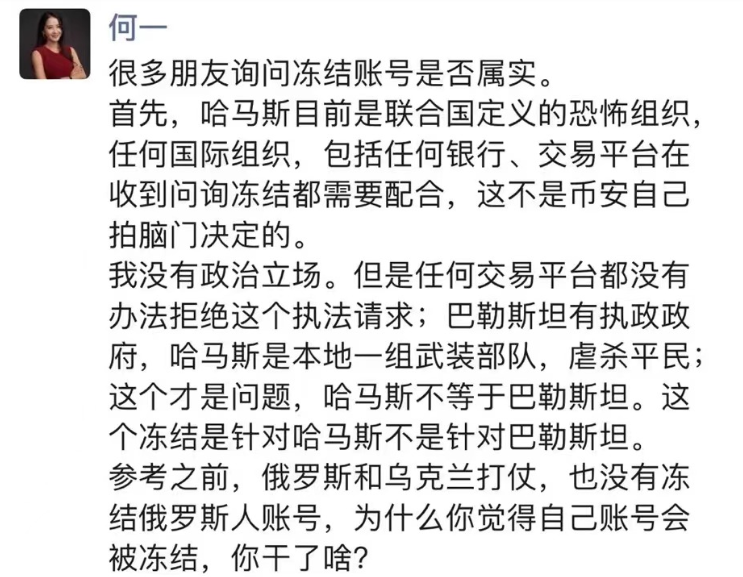[ad_1]
Crypto exchange Binance has frozen accounts linked to Hamas militants as per requests from Israeli law enforcement.
According to an October 10 WeChat post by Yi He, the exchange’s co-founder, the freeze is targeted towards Hamas and not the people of Palestine. As narrated by He:
“Hamas is a designated terrorist organization by the United Nations. Therefore, any organization, including banks and trading platforms, will need to cooperate on the receipt of freeze requests. This is not something Binance can decide on its own.”
Yi He further explained that no trading platforms can refuse such requests: “Palestine has an organized government. Hamas is a local militant group. They kill civilians; that’s the problem. Hamas is not Palestine; the freeze is targeted towards Hamas, not Palestine.”
Earlier today, local news outlet Calcalist reported that Israeli officials froze the crypto accounts of Hamas militants with the help of Binance. Law enforcement claims that terrorists used the accounts to collect war-related funding via social media.
The day prior, Cointelegraph reported that the local Web3 community in Israel launched a charity campaign to help Israeli civilians affected by the ongoing conflict. Dubbed “Crypto Aid Israel,” the initiative supports both Bitcoin (BTC) and Ethereum (ETH) donations, along with other ERC-20 tokens such as Tether (USDT). The movement has received nearly $50,000 in crypto donations since its release.
Yi He suggested that ordinary users would not be affected by the ban, including Palestinian civilians. “Referring to earlier incidents, when war broke out before Russia and Ukraine, we did not freeze the accounts of ordinary Russians,” she stated.

[ad_2]
Source link



